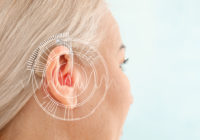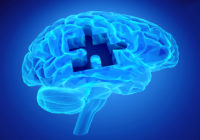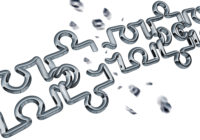Using a hearing aid can open up your possibilities for exploration and enjoyment of many activities this spring / summer. However, more time outdoors and participating in more strenuous pastimes can i...Read More
Blog
What is One-Sided Hearing Loss?
If you’re experiencing difficulty hearing in one ear, you may have one-sided hearing loss. Also known as single-sided deafness (SSD) or unilateral hearing loss (UHL), it is not a common type of hear...Read More
6 Hidden Benefits of Hearing Aids
It’s estimated that over 7% of the population in the US wear hearing aids. The older we get, the more likely it is that we may need assistive listening devices. Improving our hearing is the most o...Read More
What is the Link Between Hearing Loss and Dementia?
June is Alzheimer’s and Brain Awareness Month, so we’re exploring matters of the brain. The Hearing Loss Association of America has noted that ‘hearing loss may increase the risk of cognitiv...Read More
Building Connections with Hearing Loss
Up to 15% of adults in the US experience a hearing impairment. Around the world, hearing loss affects millions of individuals. We rely on our sense of hearing, and often don’t realize just how much ...Read More
Can Sign Language Help You Communicate?
If you struggle with a hearing impairment, you may feel that communication can be a challenge. Loud social settings, background noise or fatigue can all make communication more difficult. Fortun...Read More
Is it Normal to Have Occasional Tinnitus?
According to the National Institute on Deafness and Other Communication Disorders (NIDCD), more than 25 million Americans experience tinnitus. If you have ever experienced a buzzing, ringing or hissin...Read More
Tips to Adjust To New Hearing Aids
If you’ve had a diagnosis of hearing loss, your hearing healthcare professional may have recommended that you use hearing aid devices to improve your listening ability. Hearing aids are incredible l...Read More
Is There a Link Between the COVID-19 Vaccine & Tinnitus?
It’s fair to say that the last few years have changed our lives. The novel coronavirus COVID-19 affected all of us. We all had to come to terms with what became the ‘new normal.’ Throughou...Read More
How Does Caffeine Affect Your Hearing?
Your alarm clock chimes, signaling the start of another day. You roll out of bed, and make your way to the kitchen. Almost as though doing it from muscle memory, you begin preparing your morning cup o...Read More











Recent Comments